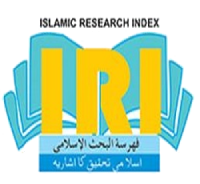Sustainability efforts related to the halal industry in the context of Muslim-friendly hotel and hospitality
Keywords:
Halal tourism, Muslim-friendly hospitality, sustainabilityAbstract
Sustainability is getting a lot of attention in various industries, including tourism. Sustainable tourism involves responsible travel practices that consider economic, social, and environmental impacts for now and the future. It aims to benefit tourists, the industry, the environment, and local communities. In Islam, sustainability means achieving well-being for consumers, economic efficiency, fairness, and ecological balance. The halal industry goes beyond food, reaching areas like tourism and hospitality, expected to be worth $320.7 billion by 2024. Muslim spending on tourism was $102 billion in 2021 and might reach $189 billion by 2025. Halal tourism offers experiences based on Islamic principles, appealing to Muslims who care about social, environmental, and economic effects. Malaysia, led by the Ministry of Tourism and Cultural Malaysia (MOTAC), is focused on advancing Muslim-Friendly Tourism and the halal industry, shown by the Malaysian Standard MS2610:2015 for Muslim-friendly hospitality. But the current hotel rating system doesn't look at sustainability. This paper aims to show possible ways to make Muslim-friendly hotels and hospitality in Malaysia more sustainable. It looks at social, environmental, and economic aspects, and considers challenges from sustainability and the Covid-19 pandemic. The study suggests ways to recover after the pandemic and promote sustainability. Social sustainability includes preserving culture, diversity, fairness, training, human rights, guest well-being, safety, community engagement, and philanthropy. Environmental sustainability means being eco-friendly, using resources well, managing waste, keeping biodiversity, and designing green buildings. Economic sustainability is about growing the economy, making jobs, improving infrastructure, and helping communities earn more. The Covid-19 pandemic led to new hotel ideas to stay strong. The study suggests moving towards sustainable practices to overcome challenges and recover better after the pandemic, giving a full understanding of sustainability in halal tourism and hospitality.
Downloads
Published
How to Cite
Issue
Section
License

This work is licensed under a Creative Commons Attribution 4.0 International License.
This work is licensed under a Creative Commons Attribution 4.0 International License.





